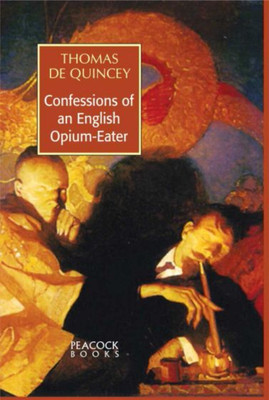Confessions of an English Opium Eater(English, Hardcover, Thomas De Quincey)
Quick Overview
Product Price Comparison
Confessions of an English Opium-Eater is Thomas De QuinceyŌĆÖs autographical account. In it, he describes his opium and alcohol addiction and its effect on his life. It was his first published ŌĆ£major workŌĆ”and the one which brought him fame almost overnight...ŌĆØ Confessions were first published anonymously in September and October 1821 in the London Magazine. The book form came in 1822, and again in 1856, in an edition revised by De Quincey. The original account was organized into two parts: Part I begins with a notice ŌĆ£To the ReaderŌĆØ and established the narrative frame: ŌĆ£I here present you, courteous reader, with the record of a remarkable period in my life....ŌĆØ Thereafter, there is substance of Part I. Preliminary confessions in this part are devoted to authorŌĆÖs childhood and youth, and describe the emotional and psychological factors that formed the basis of later opium experiences. Part II is divided into a number of parts. There is a brief introduction and connecting passage, followed by ŌĆ£The Pleasures of OpiumŌĆØ, which discusses the early and largely positive phase of the authorŌĆÖs experience with the drug, between the years 1804 and 1812. ŌĆ£The Pains of OpiumŌĆØ recounts authorŌĆÖs extreme opium experiences up to that time, marked by insomnia, nightmares, frightening visions, and difficult physical symptoms. It is said that even when trying to convey darker truths, De QuinceyŌĆÖs language can seem seduced by the compelling nature of the opium experience whereby ŌĆ£the sense of space, and in the end, the sense of time, were both powerfully affected. Buildings, landscapes, etc. were exhibited in exaggerated proportions. The Confessions represents De QuinceyŌĆÖs initial effort to write what he called ŌĆ£impassioned proseŌĆØ. It maintained a place of primacy in De QuinceyŌĆÖs literary output, and his literary reputation, from its first publication. There came numerous editions of the book. It was also translated into other languages.


